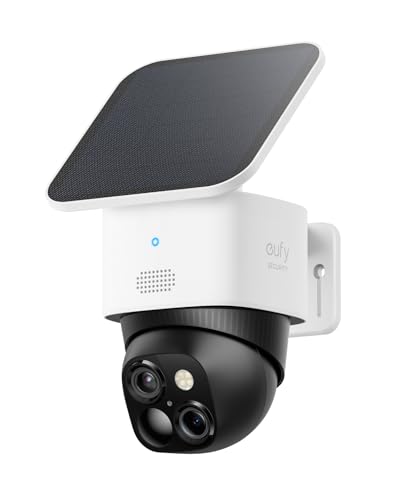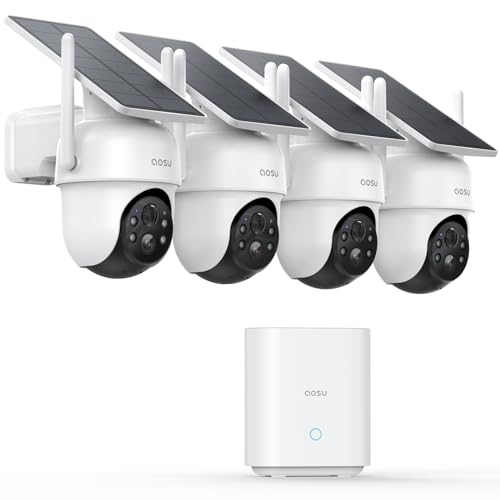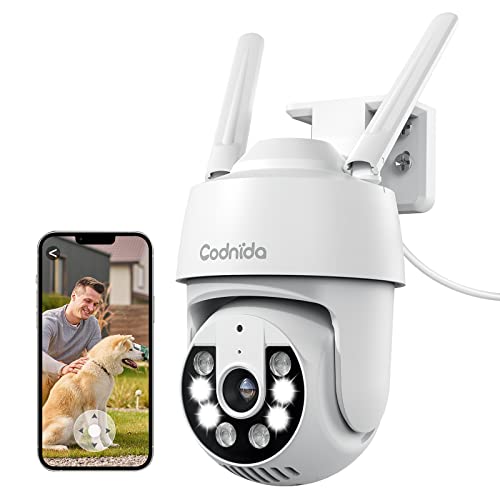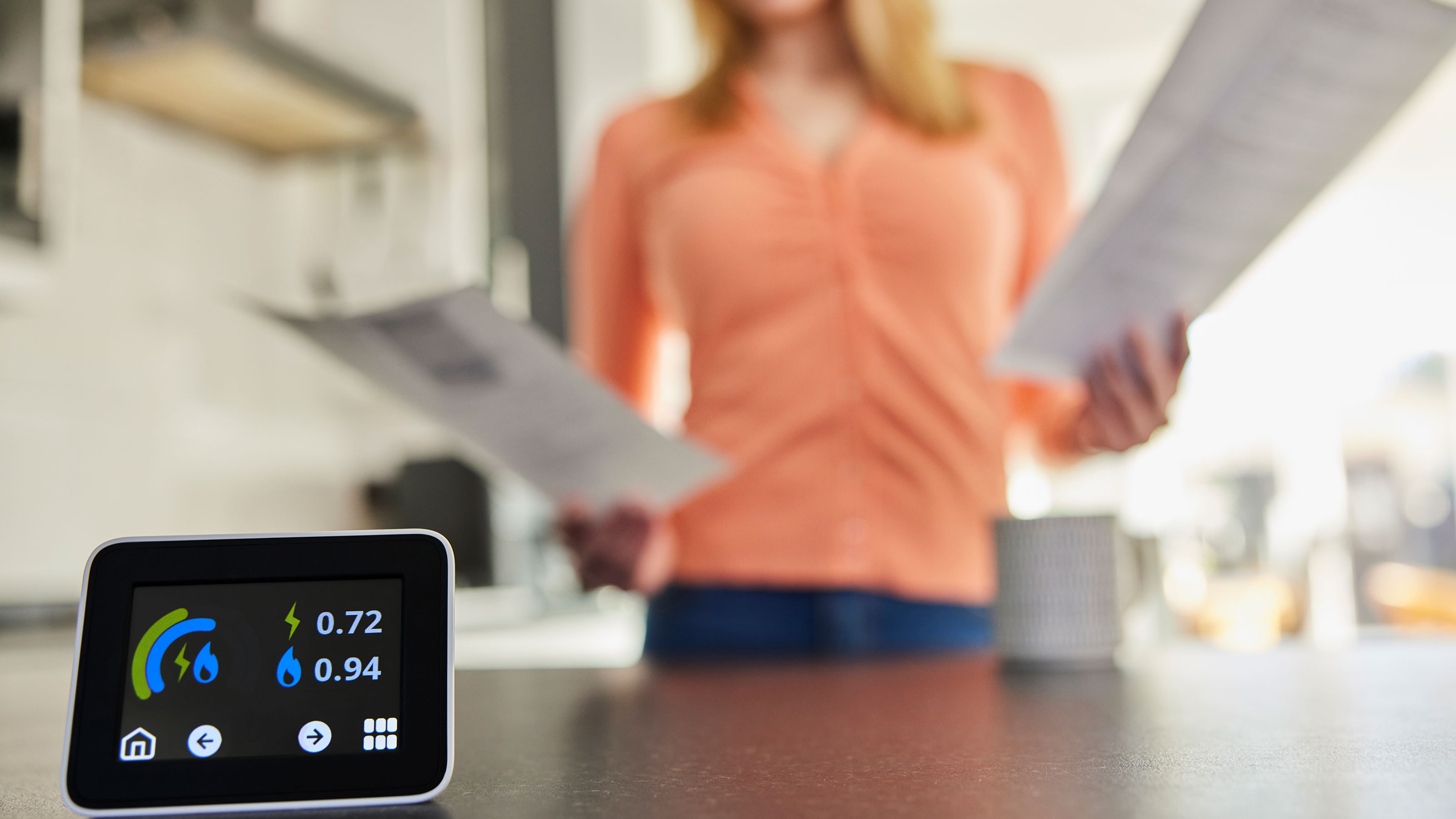Can my neighbour have CCTV pointing at my house? Your rights to privacy
What you need to know about the use of CCTV cameras near to your home
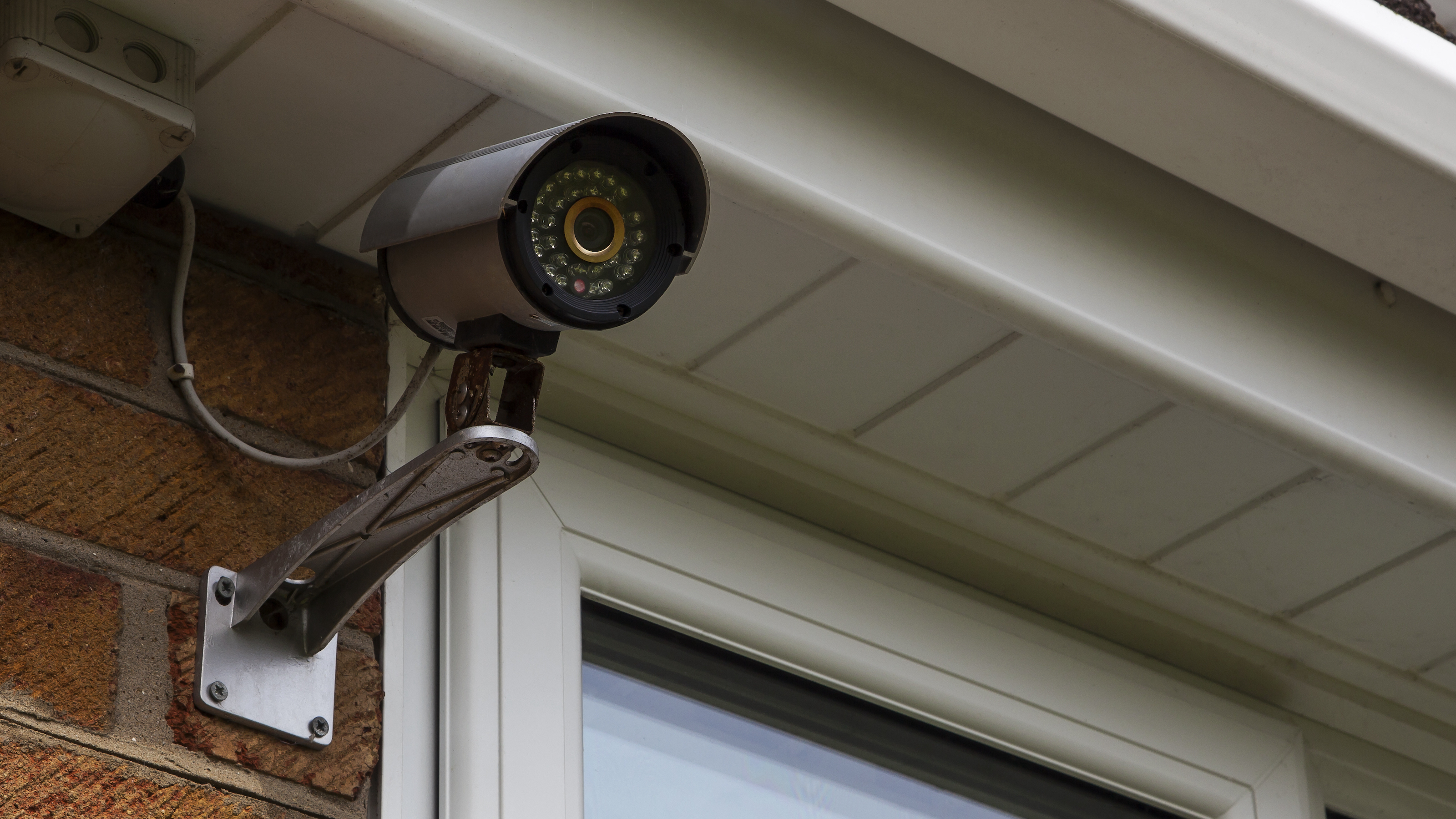
Bring your dream home to life with expert advice, how to guides and design inspiration. Sign up for our newsletter and get two free tickets to a Homebuilding & Renovating Show near you.
You are now subscribed
Your newsletter sign-up was successful
The choice of high tech ways to boost home security means many of us have other people’s security cameras in close proximity to our homes. And their presence might well make you ask the question can my neighbour have CCTV pointing at my house?
Often recommended as part of home security systems, domestic CCTV cameras as well as video doorbells have become commonplace. But their use creates issues. If your neighbour’s camera is pointing at your house or garden, as well as feeling that your privacy has been invaded, you might wonder if this is legal.
To help you understand what’s permissible and what’s not we’ve put together this guide. We’ve also included the details on what you can do if you have concerns about your privacy, as well as advice on how cameras should be positioned to minimise intrusion.
What constitutes a reasonable use of CCTV?
If your neighbour is using CCTV, it’s important to understand what is considered reasonable.
“Reasonable use of CCTV by a neighbour is when it is installed to monitor and protect their own property, such as their home, garden or driveway, without intruding into spaces where others have a reasonable expectation of privacy,” says Holly Wilkinson, trainee solicitor at SAS Daniels.
“Usage of CCTV is generally acceptable when the cameras are positioned to observe only areas clearly within the boundaries of the neighbour’s own property,” she explains. “However, if this isn’t possible and the CCTV captures someone else’s property, a public area or communal space, then data protection law applies. This is because CCTV can capture images and voices of other people, and this counts as their personal information.
“The line is crossed when the cameras deliberately capture footage of areas that are not part of the neighbour’s property or are considered private, for example, if the CCTV is angled in such a way that it shows the interior of someone else’s home, their private garden, or any location where individuals expect a level of privacy.”
Bring your dream home to life with expert advice, how to guides and design inspiration. Sign up for our newsletter and get two free tickets to a Homebuilding & Renovating Show near you.
“The situation becomes even more serious if the system records audio without consent,” Holly says. “Such practices can violate privacy rights under legislation like the Data Protection Act 2018 (DPA) and the Human Rights Act 1998, which protect individuals from unwarranted surveillance. When these boundaries are crossed, not only is it an issue of personal privacy, but it could also be potentially unlawful.”

Holly Wilkinson is a trainee solicitor in SAS Daniels’ litigation and dispute resolution team. After completing her law degree, Holly went on to study her LPC.
Shop home CCTV
Issues and concerns with a neighbour’s CCTV
A neighbour’s CCTV use can arouse a number of concerns.
Invasion of privacy You might feel that it is invading your privacy and that of visitors to your home, and that you are being watched.
Recording children This might feel like an an additional invasion of privacy. Note, however, that if you think your children are being recorded inappropriately, you should contact the police.
Harassment If you have an ongoing dispute with your neighbour, their use of CCTV can feel like harassment. Be mindful, though, that the Information Commissioner’s Office (ICO) says it is unlikely the police would consider the use of CCTV as harassment without other misconduct.
Data storage Your neighbour’s capture of video and possibly audio can also be a legitimate concern since, if this extends beyond the boundaries of their property, they need to comply with the UK General Data Protection Regulation (UK GDPR) and the DPA.
If any of these are an issue, the steps to take are below.
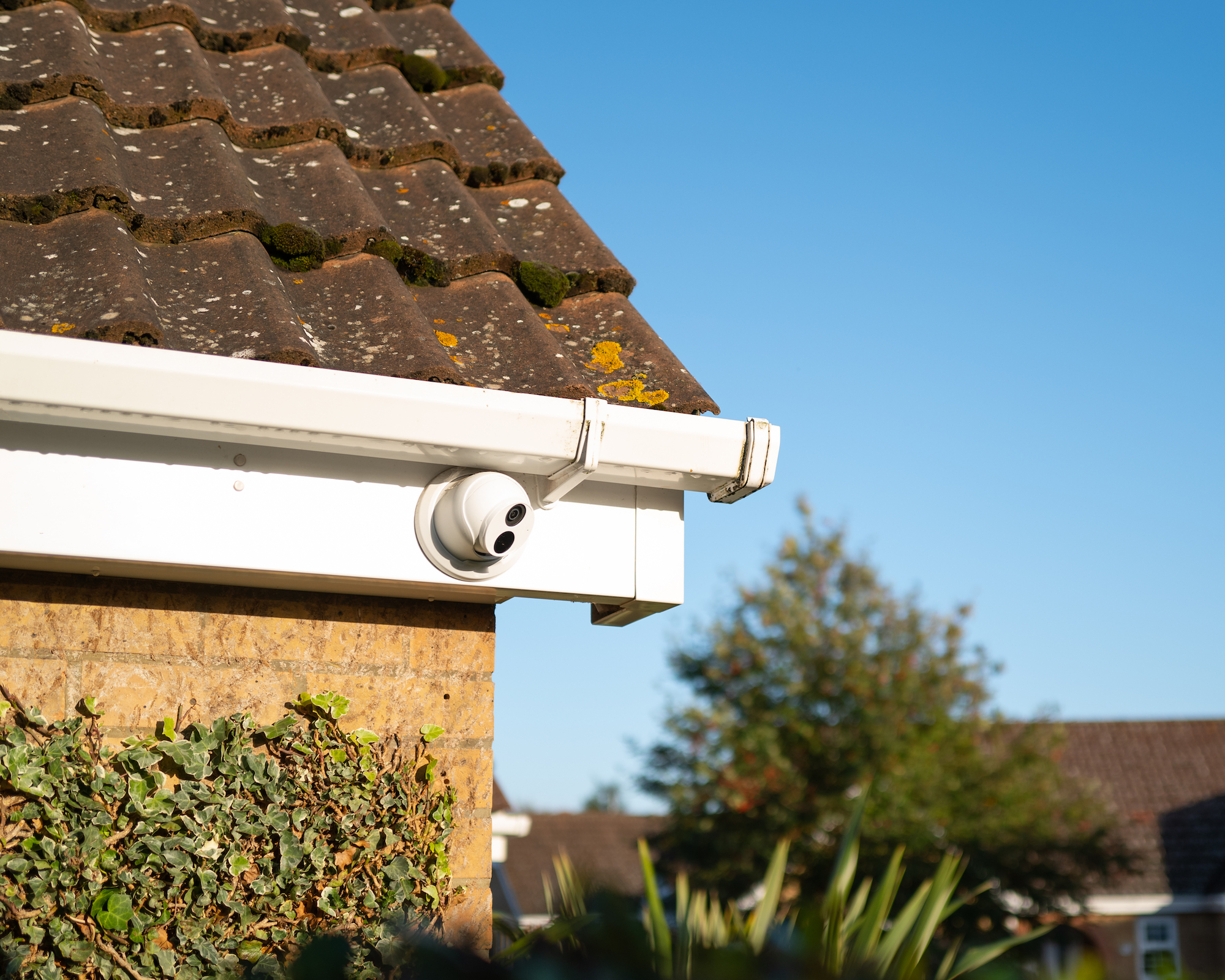
What you can do if a neighbour’s CCTV is problematic
If you think your neighbour’s use of CCTV isn’t reasonable, you should talk to them.
“A calm, direct conversation is often the easiest first step,” says Holly Wilkinson. “Explain your concerns clearly and factually – point out how the camera might be capturing parts of your property or activities that you consider private. Documenting your conversation (notes on the discussion, dates, and any agreed actions) can also be useful later if the problem persists.”
The ICO has a list of questions you can ask your neighbour if you have concerns, as well as a template letter to use if you prefer to write to your neighbour instead. Meanwhile, if your neighbour is a tenant, you could contact their landlord about the issue.
If your conversation doesn’t lead to a resolution, then you might consider using a mediation service.
After taking these steps, if you think your neighbour isn’t following the rules, you can complain to the ICO. “It oversees data protection issues, which include the proper use of CCTV when it inadvertently captures images of private areas beyond a property’s boundaries,” says Holly. “Their guidance can help determine if the camera’s installation is in breach of privacy laws, and they can advise you on filing a formal complaint if necessary.”
You may, finally, wish to take legal advice. “Should the problem persist – in particular if you have overwhelming evidence of intrusive surveillance that affects your privacy – consult a solicitor who specialises in privacy or property law,” says Holly. “They can help you understand your legal position, whether the laws have been breached, and what remedies are available.”
How to gather evidence if you think your privacy is being violated
If you think your privacy is being violated, gathering evidence of how and when is essential. “Collecting this evidence methodically not only supports your case if you need to approach the ICO or pursue legal action, but it also demonstrates that you’ve taken reasonable steps to ensure that what you’re experiencing truly constitutes a violation of your privacy,” says Holly Wilkinson. She suggests the following:
Photographic evidence “Take clear, time-stamped photographs showing the placement of the CCTV camera relative to property boundaries. Capture images that display the camera’s angle and what areas it covers (especially if it includes spaces you consider private). Measure and annotate distances if possible; a simple diagram can help illustrate how the camera’s field of view overlaps your private property.”
Documentation of incidents “Keep a log or diary noting dates, times, and circumstances when you believe the camera intruded into your private space. Note any specific activities that were captured by the CCTV, emphasising the sensitivity or personal nature of those areas.”
Diagrams or maps “Create a simple diagram or sketch of your property boundaries in relation to the CCTV camera’s position and its field of view. Use measurements or landmarks to support your observations. This visual aid can be very useful when explaining your concerns to authorities or legal advisers.”
Correspondence records “If you have already voiced your concerns to your neighbour, maintain copies of any written communications (such as emails or text messages) where the issue was discussed.”
Positioning CCTV to minimise intrusion
If it’s you that has a CCTV camera rather than your neighbour, it pays to keep in mind that they might have some of the above concerns.
“To ensure both a safe home and to prevent being caught out by the law, cameras should be positioned carefully to minimise capturing areas beyond one property wherever possible,” advises Anthony Neary, security expert at Safe.co.uk.
If the situation of your home means your neighbour’s home or garden (or the street) is in camera range, opt for those with filters or privacy blockers, which blur or block out part of the images.
You should let the people who live around you know that you have a CCTV system. “Consider displaying a sign which alerts neighbours they are being filmed – this can also act as a deterrent for burglars lurking,” recommends Anthony. Alternatively, you should tell your neighbours about your CCTV use.
When the CCTV belongs to you, you must be aware of other people’s data protection rights and do what is necessary to allow the people you record to exercise these rights.

Anthony Neary is the founder and security expert at home and business security retailers Safe.co.uk. With over 15 years of industry experience, he specialises in security solutions and how to keep properties safe.
A conversation with your neighbours could allay your concerns about CCTV and it can also be necessary so both parties can abide by garden fence rules. Meanwhile, if you’re extending your home, talking before you start is one of the ways to stay on good terms with your neighbours during a build.
Sarah is a freelance journalist and editor writing for websites, national newspapers, and magazines. She’s spent most of her journalistic career specialising in homes.
She loves testing the latest home appliances and products, and investigating the benefits, costs and practicalities of home improvement. She is an experienced renovator and is currently remodelling the ground floor of her new home.
She was Executive Editor of Ideal Home and has worked for Your Home and Homes & Ideas. Her work has published by numerous titles, including The Guardian, channel4.com, Houzz, Grand Designs, Homes & Gardens, House Beautiful, Homes & Antiques, Real Homes, The English Home, Period Living, Beautiful Kitchens, Good Homes and Country Homes & Interiors.
